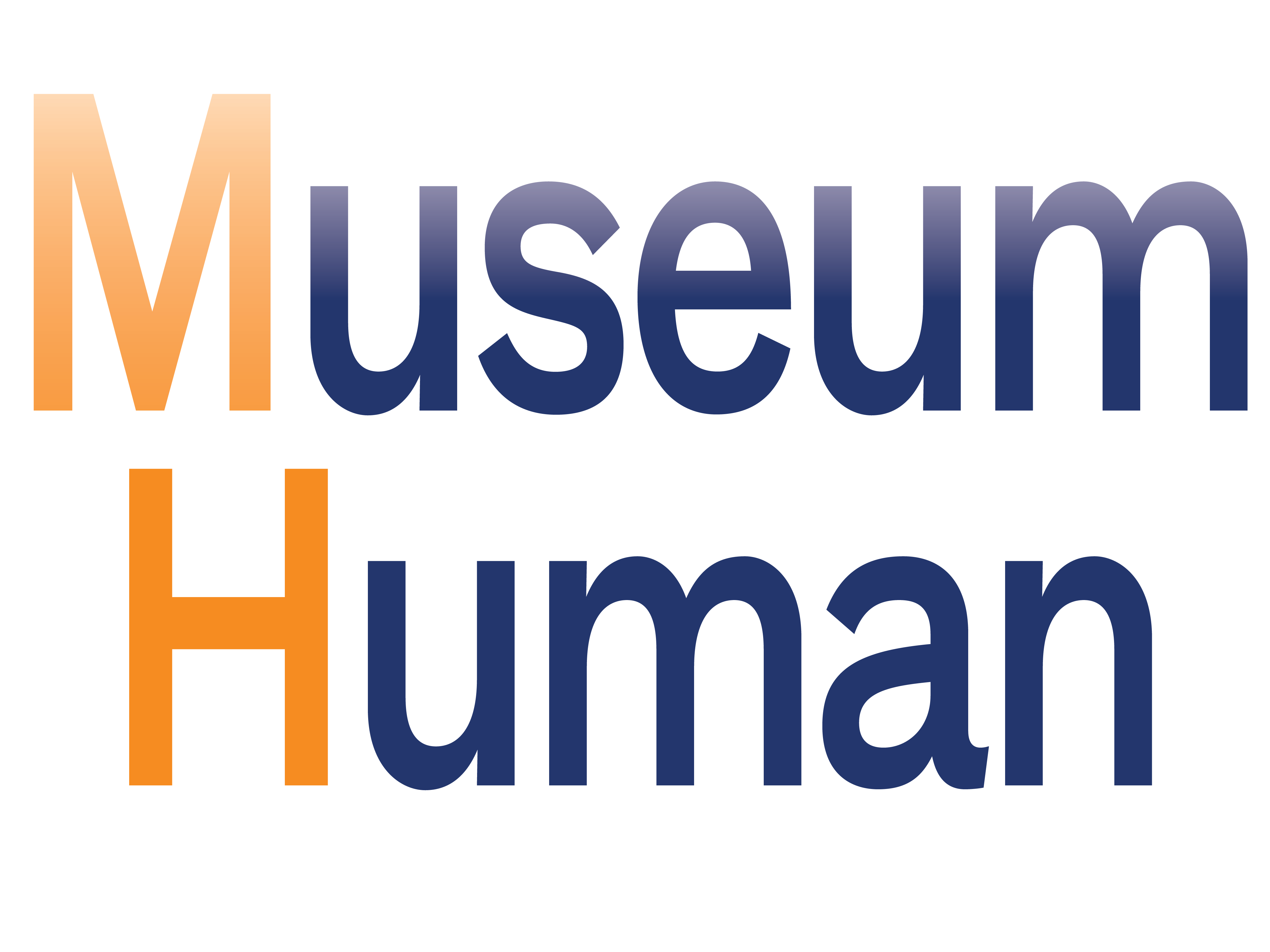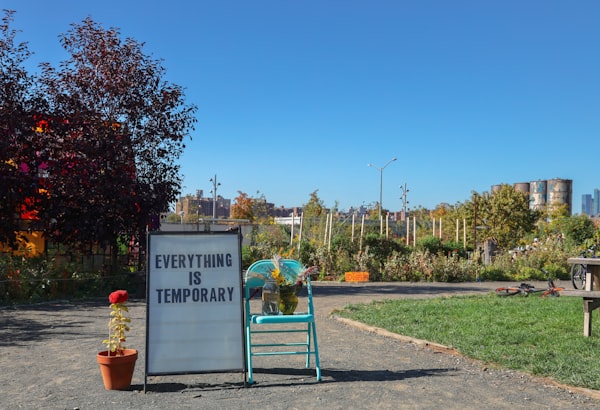Some end-of-year reading on museums, silos, learning, racism, leadership, and climate
If you're reading this and not a subscriber to Museum Human, consider scrolling to the bottom and signing up now—it's free and is the only way to read the site's longer weekly post on the organizational culture of cultural organizations.
This is a pretty long list of articles, so I'll keep the narratives brief. Many of the articles listed here relate to multiple areas of focus, so my choices are probably pretty arbitrary, but what isn't in the content game?
Now I know that many of my links are not directly museum-related, but I think they're all important for museum folks to consider in their own discussions and decision-making. There's a reason I included a link about Netflix investing in Black-owned banks as a budget line and not charity—museums need to consider the involvement of people in neighboring areas as a business decision and an ethically just thing to do, not just a philanthropic "nice to have" separate from the organizational bottom line for when "times are good."
In so many ways, we in museums need to expand our idea of what it means to work in a museum and what museum work means. Otherwise, we're going to be hiding in our own silos as things continue to deteriorate.
So let's start, beginning with articles tightly focused on museums and then moving outwards.
Museums focus
- This article from the Robb Report on the challenges facing Black curators encompasses both museums and the crisis of racism. (Check out my blog post on racism and museum org culture here.)
- Also on the subject of racist museum cultures, this blog post on the predatory nature of museums seeking "community participation" is a stark reminder of the insular habit (at every level) of museum org culture. I'll write more on the topic in the new year but it's too timely not to include it here.
- This piece from the American Alliance of Museums blog on museums and trust has an implied opposition to the Museums are not Neutral movement.
- MuseumNext has an article on the conundrum of deaccessioning. (Check out my related blog post here.)
- Also from MuseumNext, here's an article on how institutions can improve their environmental sustainability.
- Art News covered protests against an auction of indigenous objects and the discussion of how deep the issue of cultural heritage—and appropriation—goes in the museum sector.
- Jing Culture and Commerce wrote about Cultural Futures, a joint endeavor of Museum Computer Network and NEW INC.
- This discussion has continued well beyond the original events in Chicago, but here's a good piece from Hyperallergic on the "whitelash" against the Art Institute of Chicago's decision to eliminate its docent program. Considering the state of intractable opposition that our society has reached, it's not likely to be the last the museum sector will experience on this issue, whether in Chicago or elsewhere.
- The New York Times wrote about a program at the New-York Historical Society to bring public voices into didactic labels.
- Elizabeth Merritt, the voice behind AAM's Center for the Future of Museums, introduced this post by Margaret Koch, Director of the Bullock Texas State History Museum, on how that institution made an opportunity for staff development out of the pandemic-induced crisis for museums. You should read the entire piece to understand how many issues of museum work needed to be addressed.
- Aaron Straup Cope is an amazing voice on Twitter, and here is a hard-to-easily-categorize post that came out of an MCN 2021 conference session, "The Mythologies of Museums." The ostensible subject matter is continuity, but it will spark many serious conversations.
- Here's a much-discussed recent post on the high number of museum-director-position vacancies. (Check out this short Twitter conversation on the topic.)
- I'll end this section with this piece from the "hard-left" website Truthout, a deep dive into the unionization movement in museums. If you've only read the news here and there about museums and unions, it's a must-read.
Silos, Learning, Leadership
- Harvard Business Review had this long article on how silos can actually create checks and balances in the organization. (I wrote an appreciation of silos last year here, but in light of how remote/hybrid work combined with the museum-work cult of overwork has exposed trust issues in many organizations, we have to be careful about celebrating silos.)
- HBR has a couple of pieces here on lifelong learning—on creating new knowledge and making learning a part of one's daily routine, though, again, the busyness level makes the idea of daily learning extremely difficult. (The views espoused in this HBR take on treating workers like a supply chain is part of the problem.)
- I don't remember how I found this scholarly article on the persistence of the idea of singular leadership, but it's a worthwhile read.
- The blog Nonprofit AF asked how radically-reinvented leadership might work.
- I probably linked to this before, but here’s a good explanation of radically shared leadership. (Mike Murawksi always has worthwhile views on leadership in museums.)
- A recent newsletter from org culture guru Stowe Boyd included a link to this piece, "Do you really want that promotion?" And while it seems to validate the new non-hustle mentality, the article still defines leadership as "going up." Too many leadership programs, in museums and elsewhere, have an end goal of creating a new generation of leaders who are separate from the rest of the staff and have special, uniquely-taught-and-shared skills that they then practice on others. Museum leadership needs a serious re-conceptualization.
The crisis of racism
- This Medium piece from Umair Haque explains everything you need to know about racism in tech titan companies, and why nobody cares enough because the Facebooks of the world mostly harm women and minorities.
- Wired had this article about Netflix investing in Black-owned banks (though $100 million to Netflix is just some cash lying around). At least the company is treating this as a budget-line expenditure and not just philanthropy.
- HBR wrote about "sharing our stories" to build inclusion, but the question is whether this builds understanding or just a practice of white people searching their own lives in a game of find-a-moment-of-imperfection. It's not clear this practice will change org structures.
The Crisis of Climate Collapse
- I came across several pieces on how literature has addressed the climate collapse, including Wired on "metaverse"-coiner Neal Stephenson, the Guardian on climate collapse and the culture "wars," Boston Review on the dishonesty of literature and climate change, and Cory Doctorow in Locus on how sci-fi manages to keep the reality of climate collapse just off-stage.
- Truthout wrote about how indigenous communities regard the carbon-trading market.
- This piece from Medium is a reminder that the conversation around climate collapse is still primarily individualized, leaving big conglomerates free to continue polluting. (The same blog described how new financial tools are also allowing corporations to buy nature for their own purposes.)
- Intelligence agencies and previous climate agreement architects are agreed that the current steps are far too limited to impact climate collapse, echoed by Haque here and Noam Chomsky and Robert Pollin here; the latter believe that hope for our world was exemplified in the protests outside the conference halls in Glasgow, not in the meetings themselves.
- Could the blockchain actually help keep track of climate damage? It's not the worst idea to come out of this space gummed up with scams and schemes.
- Finally, I was led to this particular philosopher by the work of colleague Briana Parker about museums and the climate. Timothy Morton's conception of hyperobjects (read here and here) can encompass overarching realities such as the climate and the pandemic. While this might seem academic, I believe engaging with these concepts as we would with physical entities can increase our hope. (I was reminded of sci-fi author Robert Charles Wilson's short story The Perseids and Caryl Churchill's play Far Away, both of which feature realities where almost everything—from the greatest universe-spanning entities to the smallest iota of nature—is at war, or at least potentially an adversary. There are other higher-dimensional-beings stories like Greg Egan's hard-sf Diaspora and Olaf Stapledon's Star Maker.) It's easy in this society to fall into war-of-all-against-all mindsets, and I'll discuss that next week and next year, but couldn't we also find our way to union-of-all-with-all?
I hope you enjoy, or at least bookmark, these links. Stay tuned next week for a review of the top themes of Museum Human in 2021 and then the final everyone-out-of-the-pool Links of the Week for the year.
cover photo by Mor Shani / Unsplash [description: a sign reading "everything is temporary" next to a flower in a pot and a plant on a chair, on a gravel track in a park, with industrial buildings in the background]

Links of the Week: December 10, 2021: Everything Must Go, Part 2 by Robert J Weisberg is licensed under a Creative Commons Attribution-NonCommercial-ShareAlike 4.0 International License.







